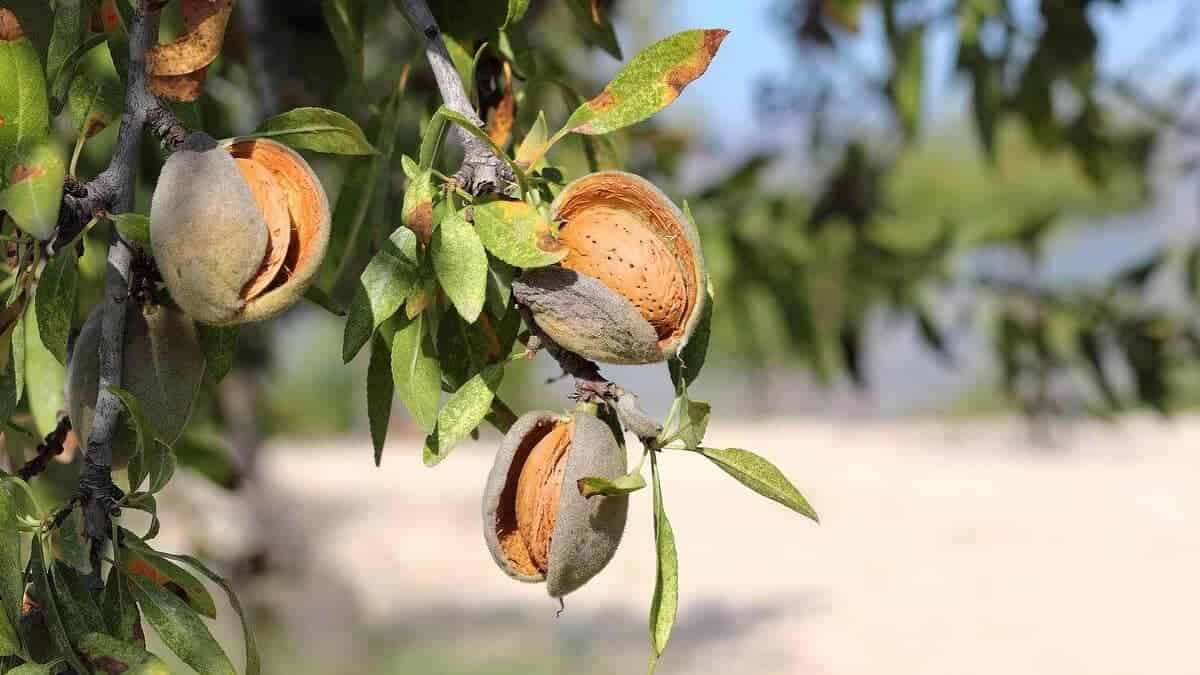California farmers are responsible for growing 80% of the world's almonds, but an invasive beetle from Australia may be causing a big blow to the industry.
The roughly 2.5-millimeter-long Carpohilus truncates beetle has been detected in Stanislaus, Merced, Madera and Kings County.
"The one thing we know about this bug is we don't know anything," said Mel Machado, who is the vice president of member relations for Blue Diamond Growers.
Machado's almond orchard in Oakdale has not seen any of the invasive bugs, but he has been monitoring samples of them to understand them more.
"It's been interesting to watch these things and see them develop," said Machado.
University of California researcher Jhalendra Rijal said that they do not know how the beetles got here, but they have been attacking almonds in Australia for the past ten years.
"If you get 1% statewide damage, which is 2 billion pounds, still, we're talking about millions of dollars lost every year," Rijal said.
Researchers and farmers told CBS13 that the best defense against the beetle right now is crop sanitation. This is destroying all the unharvested nuts that stayed on the orchard floor during the winter that the bugs like to burrow in.
It is a similar method farmers use to fend off the naval orange worm which completely infested some grower's crops last year, making it a total loss.
Machado said the recent wet weather may have knocked off a day of the four-week almond bloom, but it is looking much better than last winter which was cold and very wet.
The bad weather means bad news for the bees, but sunshine in Stanislaus County now has the bees buzzing.
"If we get days like this, we will keep flowers," Machado said.
However, the invasive beetles could threaten all this almond joy.
The beetles are also infesting pistachio growers.
Representative Josh Harder from District 9 is asking the U.S. Department of Agriculture for an emergency response to help growers across the Central Valley address the problem. He wrote a letter to the Secretary of Agriculture about the growing problem.
"The last thing farmers need is an invasive beetle killing some of our most important crops. These tiny pests lay their eggs inside unharvested 'mummy nuts' and can survive the cold winter months before they come out and feed on developing almonds, pistachios, and walnuts," said Rep. Harder in a press release. "We have to treat this invasion like the major economic threat it is. I'm calling on the USDA to step up and help our farmers get this under control before it's too late."
Almond Alliance President and CEO Aubrey Bettencourt provided this statement to CBS13 about the invasive beetle issue:
"The almond industry is confronting a grave challenge - a devastating beetle infestation that threatens California's orchards. This non-native invasive pest presents a severe threat not only to our almond trees' health but also to our growers' livelihoods and the almond industry's overall sustainability.
Without immediate and decisive action, we risk significant damage to our almond production, representing 100 percent of the United States supply and nearly 80 percent of the world's supply. It is a critical moment for our industry, requiring the concerted efforts of all stakeholders - local, state, and federal agencies - to immediately provide the resources and support to combat this threat.
The Almond Alliance greatly appreciates Congressman Harder's leadership in this challenging issue facing the almond industry. With his engagement, a dialogue with USDA has been opened, and his office is taking the lead in identifying options that can benefit our growers to combat this harmful non-native invasive species."
Source - https://www.cbsnews.com













